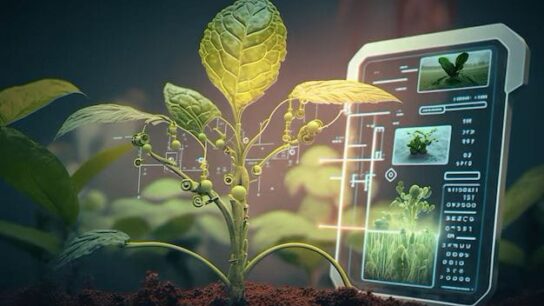Science and it’s factors !
Science is a multifaceted endeavor encompassing various factors that contribute to its growth, development, and impact on society. In this detailed exploration, we will delve into the intricacies of science, examining its key components, methodologies, historical evolution, societal implications, and future prospects.
Introduction to Science:
Science, derived from the Latin word “scientia” meaning knowledge, is a systematic enterprise that builds and organizes knowledge in the form of testable explanations and predictions about the universe. It encompasses a wide range of disciplines, including physics, chemistry, biology, astronomy, earth sciences, and social sciences. At its core, science seeks to understand the natural world through empirical evidence and logical reasoning.
Factors Influencing Science:
- Curiosity and Inquiry:
- Curiosity is the driving force behind scientific exploration. It compels individuals to ask questions, seek answers, and unravel the mysteries of the universe.
- Inquiry-based learning encourages active participation and critical thinking, fostering a culture of scientific inquiry from an early age.
2. Methodology and Experimentation:
- The scientific method provides a systematic approach to inquiry, involving observation, hypothesis formulation, experimentation, data analysis, and conclusion drawing.
- Experimentation allows scientists to test hypotheses and theories, providing empirical evidence to support or refute scientific claims.
3. Collaboration and Communication:
- Collaboration among scientists fosters interdisciplinary research and enables the exchange of ideas, expertise, and resources.
- Effective communication of scientific findings through publications, conferences, and media channels ensures transparency and dissemination of knowledge to the wider community.
4. Funding and Resources:
- Adequate funding and access to resources are essential for conducting scientific research, supporting equipment procurement, laboratory facilities, and personnel.
- Government agencies, private foundations, academic institutions, and industry play crucial roles in funding scientific endeavors.
5. Technological Advancements:
- Technological innovations drive scientific progress by enabling new observations, measurements, and experimentation techniques.
- Tools such as microscopes, telescopes, DNA sequencers, and supercomputers revolutionize research capabilities across various scientific disciplines. Methodologies in Science:
Methodologies in Science:
- Empirical Observation
- Science relies on empirical evidence obtained through direct observation or indirect measurement of natural phenomena.
- Observation serves as the foundation for generating hypotheses and theories, guiding subsequent experimentation and analysis.
2. Hypothesis Formulation:
- Hypotheses are testable explanations proposed to answer specific scientific questions or address observed phenomena.
- They are formulated based on existing knowledge, logical reasoning, and predictions derived from theoretical frameworks.
3. Experimentation:
- Experiments are controlled procedures designed to test hypotheses and gather empirical data.
- Variables are manipulated and measured to assess their effects and validate or refute the proposed hypotheses.
4. Data Analysis and Interpretation:
- Data collected from experiments are analyzed using statistical methods, modeling techniques, and computational algorithms.
- Interpretation of results involves drawing conclusions, identifying patterns, and assessing the significance of findings in the context of existing knowledge.
5. Peer Review and Reproducibility:
- Peer review ensures the quality and reliability of scientific research by subjecting manuscripts to scrutiny by independent experts in the field.
- Reproducibility of results is essential for validating scientific claims and building confidence in the reliability of experimental findings.
Historical Evolution of Science:
- Ancient Roots:
- The origins of science can be traced back to ancient civilizations such as Mesopotamia, Egypt, Greece, and China, where early scholars made observations and formulated rudimentary theories about the natural world.
2. Classical Period:
- The scientific revolution of the 16th and 17th centuries marked a significant turning point in the history of science, characterized by the emergence of modern scientific methodologies, including the use of experimentation, mathematical analysis, and empirical observation.
3. Enlightenment and Industrial Revolution:
- The Age of Enlightenment saw the proliferation of scientific inquiry, rationalism, and empiricism, leading to advancements in physics, chemistry, biology, and medicine.
- The Industrial Revolution fueled technological innovations and scientific discoveries, transforming societies and economies worldwide.
4. Modern Era:
- The 20th century witnessed unprecedented progress in science and technology, with breakthroughs in relativity, quantum mechanics, genetics, space exploration, and information technology.
- The post-World War II era saw the establishment of government-funded research agencies, such as NASA and the National Institutes of Health (NIH), which accelerated scientific research and innovation. Societal Implications of Science:
Societal Implications of Science:
- Technological Innovation:
- Science drives technological innovation, leading to the development of new products, processes, and industries that enhance productivity, improve living standards, and address societal challenges.
2. Health and Medicine:
- Scientific advancements in medicine and healthcare have led to the eradication of diseases, prolongation of life expectancy, and improvement of public health outcomes.
- Biotechnological breakthroughs, such as gene editing and personalized medicine, hold promise for addressing complex medical conditions and enhancing human well-being.
3. Environmental Sustainability:
- Science plays a critical role in understanding environmental issues, such as climate change, pollution, deforestation, and biodiversity loss.
- Research findings inform policy decisions, technological innovations, and behavioral changes aimed at mitigating environmental degradation and promoting sustainability.
4. Ethical and Social Implications:
- Science raises ethical and social dilemmas related to issues such as genetic engineering, artificial intelligence, nuclear energy, and bioethics.
- Ethical considerations, public engagement, and regulatory frameworks are essential for balancing scientific progress with societal values, human rights, and environmental ethics. Future Prospects of Science:
Future Prospects of Science:
1. Interdisciplinary Collaboration:
- Future scientific research is likely to be increasingly interdisciplinary, as complex problems require collaborative approaches integrating multiple disciplines and perspectives.
2. Emerging Technologies:
- Emerging technologies, such as nanotechnology, quantum computing, artificial intelligence, and biotechnology, hold immense potential for transformative breakthroughs in science, industry, and society.
3. Global Challenges:
- Science will continue to address global challenges, including climate change, infectious diseases, food security, energy sustainability, and inequality, requiring international cooperation and concerted efforts.
4. Ethical and Responsible Innovation:
- Ethical considerations and responsible innovation frameworks will be essential for guiding the development and deployment of emerging technologies, ensuring their alignment with societal values, human rights, and environmental sustainability.
Conclusion:
Science is a dynamic and multifaceted enterprise shaped by various factors, methodologies, historical developments, and societal implications. From ancient civilizations to the modern era, science has transformed our understanding of the world and revolutionized human civilization. As we navigate the complexities of the 21st century, science will continue to play a pivotal role in addressing global challenges, driving technological innovation, and shaping the future of humanity. Through collaboration, inquiry, and ethical stewardship, we can harness the power of science for the betterment of society and the sustainable stewardship of our planet.



